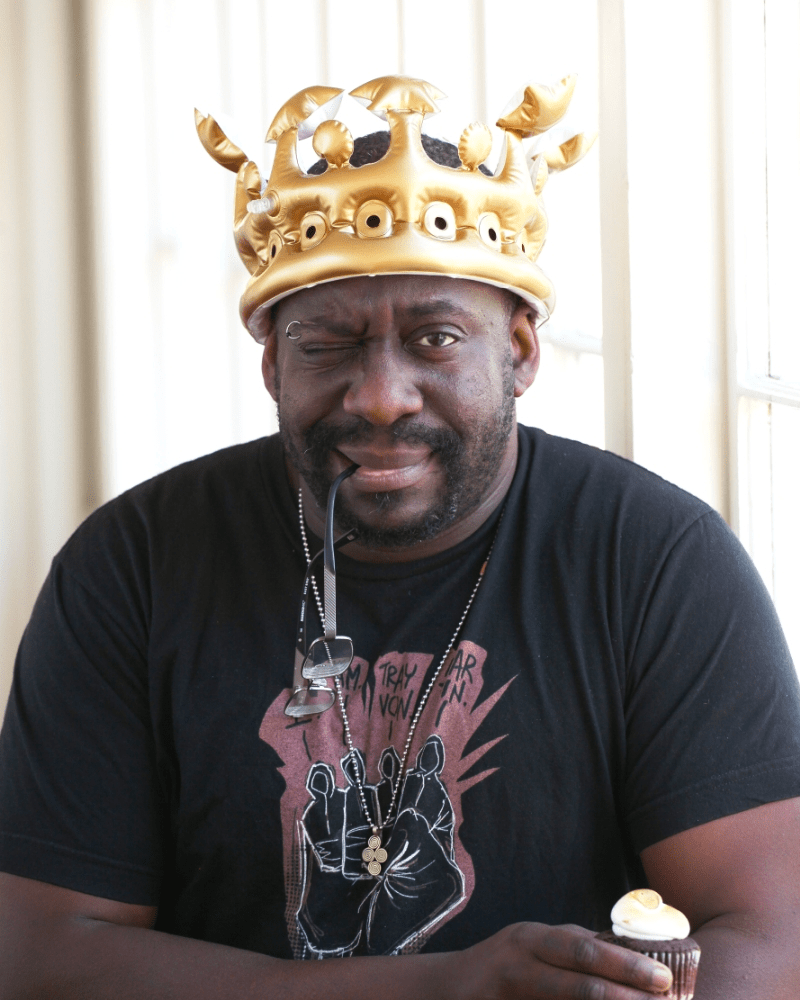
Culture
PT485 – Meeting People Where They Are: Why the Underground Will Always Thrive
February 9, 2024
Featuring: Ayize Jama-Everett, M.Div, M.A., M.F.A.
In this episode, Joe interviews Ayize Jama-Everett: author, educator, filmmaker, and therapist with a long history of work in substance use and mental health services.

In this episode, Joe interviews Ayize Jama-Everett: author, educator, filmmaker, and therapist with a long history of work in substance use and mental health services.
When Jama-Everett was last on the show, “A Table of Our Own” – a film focusing on healing, psychedelics, and bonds within the Black community – was still in its infancy. It’s now complete, and he and others behind the film are touring with it, with showings coming up in Detroit, LA, and Boston. A free follow-up discussion hosted by CIIS’ Center for Psychedelic Therapies and Research is happening Feb. 15, and, from February 15-16 only, the film is available to rent online.
He gives his full origin story: growing up around substance use, how he got into therapy and healing people through journeys, how “A Table of Our Own” came about, and how it was influenced by mushrooms. Then he discusses a lot more, with a much-needed critical eye:
- His experiences with some notorious bad actors in the facilitation space
- Decriminalization and how we celebrate small wins while ignoring steps back
- Drug exceptionalism, the Drug War, and the demonization of crack
- Power dynamics and the dangerous concept of letting go
- Why the Black community is so skeptical of psychedelics
And he talks about why it’s so important to meet people where they are – that what works for one person or one community won’t necessarily work for another, and the above-ground, corporatized, overly medicalized model will never work for everyone.
Notable Quotes
“I’m about to crawl back underground after this, I think. …This above ground shit is, by and large, for the birds. …There’s so many people now doing psychedelics and stuff, right? I would assume, given the promises, that there’d be more ethical people out there. There’d be more people with less ego. There’d be more women in charge, there’d be more queer people in charge, there’d be more people of color in charge. But it just seems like the same white corporate dudes. It’s like they’re talking about an app. …I want to just be of service to the people that need it and not deal with the rest of this bullshit.”
“The whole decrim thing in general: I feel like when decrim isn’t married with all substance use, then I don’t know what the hell we’re talking about.”
“When we talk about access, we’re talking about insurance. Dude, I barely have insurance. Insurance reimbursement? You want a revolution and you start with insurance reimbursement? What? How does that make any [sense]? Was Martin Luther King marching across that bridge in Selma, being like, ‘We are going to have insurance reimbursement for [everyone]?’ No. That is not where you meet people. That is the last fucking thing. That is the blip at the end. People are dying. People are killing themselves. …People who are seriously struggling don’t give a fuck about insurance.”
“You’re sitting here, taking all of this stuff and you’re putting it in the context of pathology: Something has to be wrong in order for you to take this, so that it can be corrected. Actually, maybe things are alright, and this is the way of joining.”
Links
Rent “A Table of Our Own” here
Bbc.co.uk: The Lovecraft Investigations
Even the Rat Was White: A Historical View of Psychology, by Robert V. Guthrie
The Righteous Mind: Why Good People Are Divided by Politics and Religion, by Jonathan Haidt


